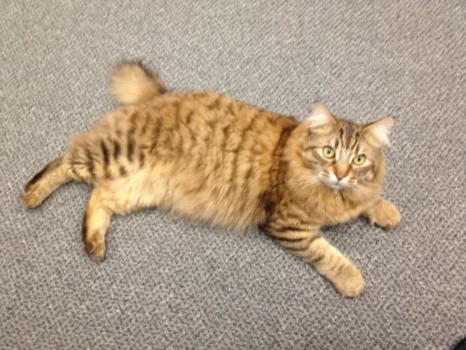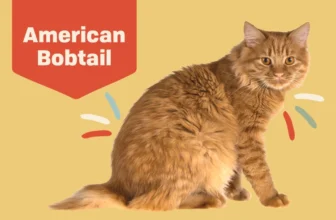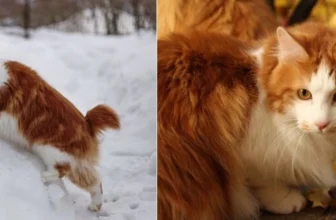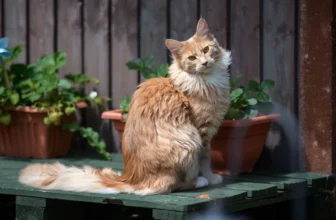As fur parents, we want our pets to adapt and thrive in any environment they may encounter. For American Bobtail cats, socialization plays a vital role in their ability to adapt to new situations and people peacefully. However, many cat owners may not fully understand what socialization entails, or they may believe their older cats are beyond the point of socialization. In this article, we will explore the significance of socializing American Bobtails, from early kittenhood to adulthood. We will also discuss the link between socialization and adaptability, providing valuable insights and guidance to ensure your beloved Bobtail lives a happy, adaptable life.
The Importance of Socialization
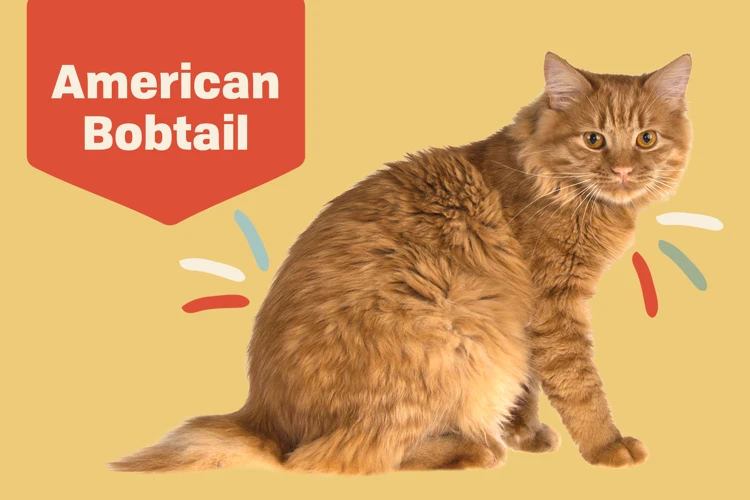
Socialization is a crucial component of raising a happy, healthy American Bobtail that can adapt to various environments. While instincts play a significant role in their abilities to adjust to changes, socialization enhances their adaptability. When introduced early, socialization can help American Bobtails learn desirable behavior and overcome behavior challenges. In this article, we will discuss the importance of socialization for American Bobtails and how it can help them adapt better to various environments. We will explore the different factors and challenges that impact their adaptability and provide tips for socializing kittens and adult cats alike.
For more information on how American Bobtails adapt to environments, you can read our article on American Bobtails and Environment Adaptation.
What is socialization?
Socialization is the process of exposing a kitten to a variety of people, animals, environments, and experiences to ensure they become well-adjusted and confident adult cats. Socialization plays a crucial role in the development of American Bobtails and their ability to adapt to new and different situations throughout their lives. It is essential to note that socialization is not just about introducing your kitten to new experiences, but it is also about ensuring your kitten has positive interactions with each of them.
Proper socialization can:
| Reduce Behavioral Issues: | Socialization can help reduce the likelihood of behavior problems such as aggression and anxiety. |
| Increase Sociability: | Socialization can help kittens learn how to interact appropriately with people and other animals, which can lead to a more sociable adult cat. |
| Boost Confidence: | Socialization helps kittens build confidence and self-assurance, which will help them to better adapt to new and unfamiliar situations throughout their lives. |
| Improve Health: | Kittens who are well socialized may experience less stress, which can lead to better overall health and a stronger immune system. |
Socialization is crucial in shaping an American Bobtail cat’s behavior and adaptability. Knowing when and how to properly socialize your kitten can help reduce behavior problems, increase sociability, boost confidence, and improve health. It’s important to prioritize socialization throughout your cat’s life to ensure they continue to adapt and be comfortable in different environments. For more information on factors that affect American Bobtails’ adaptability, check out our article on Factors Contributing to American Bobtails’ Adaptability.
Why is socialization important for American Bobtails?
Socialization is a crucial aspect of an American Bobtail’s life. By exposing them to different people, animals and environments, we can help them learn how to properly interact and communicate, which can ultimately lead to their better adaptability in different situations. Socialization is not just about making sure that our American Bobtails are friendly and sociable; it’s also about ensuring their safety and wellbeing. A well-socialized American Bobtail will be more confident and less anxious around new people and unfamiliar environments, which can help them avoid potential dangers and risks.
Proper socialization from a young age is especially important for American Bobtails as it can help prevent negative behaviors from developing later in life. If an American Bobtail is not properly socialized, they may become fearful or aggressive in certain situations, which can make them difficult to handle and decrease their overall quality of life. For example, an American Bobtail that has not been properly socialized may become scared or aggressive when encountering other animals or people, making it difficult for them to travel or adjust to new living environments.
By contrast, when an American Bobtail is well-socialized, they can become adaptable pets that can easily adjust to new environments, making them good travel pets or ideal family pets. A well-socialized American Bobtail can become more confident, friendly and curious when presented with new situations, leading to a more adaptable and enjoyable environment for both the cat and the surroundings. For example, it’s easier for a well-socialized American Bobtail to adjust to a new home or living environment as they can quickly adapt to new scents, sounds, and routines.
The importance of socialization in American Bobtails cannot be overstated. Good socialization can lead to a well-adjusted pet, making it easier to integrate them into new environments and create a harmonious relationship between the cat, their human family and other animals. That is why it is essential for American Bobtail owners to prioritize socialization, whether they are kitten owners, or they have an older American Bobtail, socialization can impact their well-being and help them become adaptable pets that thrive in new environments.
Early Socialization for Better Adaptability
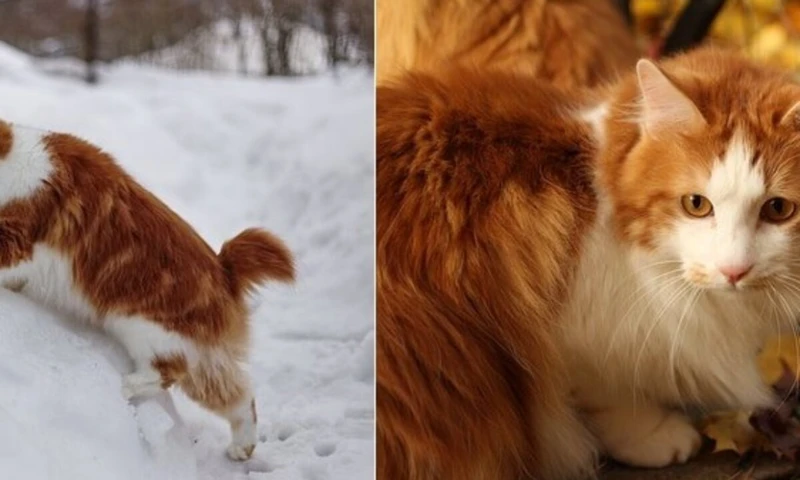
Setting the foundation for a well-adjusted American Bobtail begins with early socialization. This is the period when kittens develop their adaptability and social skills, and is crucial for their long-term wellbeing. As a responsible owner, it’s essential to prioritize your little one’s socialization process. This will help your American Bobtail adapt better to various environments and ensure that they feel comfortable and secure in their new home. In the following sections, we’ll explore when and how to start socializing your kitten, as well as the benefits of positive reinforcement and exposure to different situations and environments. For more information on creating a adaptable environment for your American Bobtail, visit /new-home-american-bobtail/.
When to start socializing your American Bobtail kitten?
Starting socialization at the right time is crucial for the adaptability of American Bobtails. According to experts, the ideal time to start socializing your American Bobtail kitten is between the ages of 3 and 14 weeks. During this time, they are still in their sensitive period for socialization and are more receptive to new experiences and people.
The following table highlights the timeline for socialization in American Bobtail kittens:
| Age | Developmental Stage | Socialization Activities |
|---|---|---|
| 3-7 weeks | Transition period | Introducing new sights, smells, sounds, and textures |
| 7-9 weeks | Exploration period | Playing with toys, exploring different parts of the house, and socializing with humans and other animals |
| 9-14 weeks | Socialization and Fear Prevention period | Exposing to different kinds of people, situations, and environments such as outdoors, traveling, and car rides. Also, introducing to children and strangers, and providing positive reinforcement for good behavior |
It’s important to note that starting socialization beyond this period may still be effective, but it may take more time and effort to achieve the desired results. Delaying socialization may increase the risk of fear and anxiety in American Bobtail kittens, which can significantly affect their overall adaptability.
Starting socialization in American Bobtail kittens at the appropriate time is essential to their adaptability. Owners must expose their kittens to various situations and environments like an adaptability-friendly environment, the house, or family members to ensure better socialization before the ideal window closes.
How to properly socialize your American Bobtail kitten?
Proper socialization is crucial for ensuring that your American Bobtail kitten grows up to be a well-adjusted and adaptable adult. This involves exposing them to a variety of people, animals, sounds, and environments in a positive and controlled manner during their early development. Here are some tips on how to properly socialize your American Bobtail kitten:
| Tip | Description |
|---|---|
| Start early | Begin socialization as early as possible, ideally between 2-7 weeks of age, before they reach the fear period in their development. |
| Introduce to different people | Expose your kitten to different types of people, including children, men, and women, to help them become comfortable around a variety of individuals. |
| Meet other animals | Allow your kitten to interact with other friendly cats, dogs or animals to learn how to socialize with other species. |
| Expose to different environments | Introduce your kitten to different environments such as outdoor spaces, car rides or walks on a leash, which will help to broaden their experiences and reduce fear. |
| Positive reinforcement | Use positive reinforcement techniques like treats, toys, and praise to reward good behavior during socialization. |
| Monitor closely | Always supervise your kitten during socialization, and watch for signs of fear or aggression; if you notice any, slow down and go back to the previous step. |
By following these tips, your American Bobtail kitten will have a strong foundation for socialization, which will help set them up for a lifetime of adaptability in different situations and with different people and animals. Remember that it’s never too late to start socialization, but it can take extra patience and consistency when socializing an older cat. To learn more about American Bobtail adaptability, check out our comparison article between American Bobtails and other cat breeds at /american-bobtails-adaptability-comparison/ or find out why American Bobtails make great family pets at /adaptability-american-bobtails-family-pets/.
Exposing them to different situations and environments
In order to properly socialize your American Bobtail kitten, it is important to expose them to different situations and environments at a young age. This helps them feel comfortable and confident in various settings and prepares them for the unpredictable nature of the world.
One way to do this is through a process called desensitization, where you gradually introduce your kitten to new experiences in a controlled manner. This could include different sounds, smells, people, and animals.
Another way to expose your American Bobtail kitten to different situations and environments is by taking them on outings to new places. This could include pet stores, parks, and even restaurants or cafes that allow pets. It is important to ensure that your kitten feels safe at all times and that these outings are a positive experience for them.
To further enhance their adaptability, providing stimulating toys and environments for them to explore can also aid in their socialization process. This could include toys that make noise, different textures to play with, and structures to climb on.
It is important to note that exposing your American Bobtail kitten to too much too soon can lead to stress and anxiety, so it is important to proceed at a comfortable pace and provide lots of positive reinforcement for good behavior.
By exposing your American Bobtail kitten to a variety of situations, environments, and stimuli at a young age, you can help them develop into a well-adjusted and adaptable adult cat.
| Ways to expose American Bobtail kittens to different situations: |
|---|
| – Gradual desensitization to new experiences |
| – Outings to new places such as pet stores and parks |
| – Stimulating toys and environments to explore |
| – Proceed at a comfortable pace and provide positive reinforcement |
Positive reinforcement for good behavior
Positive reinforcement is one of the most effective ways to encourage good behavior in your American Bobtail kitten during socialization. This involves rewarding them with treats or praise whenever they exhibit positive actions or behaviors. In order to effectively use positive reinforcement, it is important to understand what actions and behaviors you want to encourage in your kitten.
Here are some examples of positive behaviors you can reinforce during socialization:
| Desired Behavior | Positive Reinforcement |
|---|---|
| Approaching new people and animals calmly | Offering treats and praise when your kitten interacts calmly with new people or animals. |
| Exploring new environments confidently | Encouraging exploration by offering treats and praise when your kitten confidently explores new environments. |
| Playing gently with humans and other pets | Offering treats and praise when your kitten engages in gentle play with humans and other pets. |
It’s important to remember that positive reinforcement should be immediate and consistent. As soon as your kitten displays a positive behavior, instantly reward them with a treat, petting or positive verbal reinforcement such as “good job” or “well done”. Consistency is key, as it reinforces the desired behavior and encourages your kitten to continue exhibiting positive actions during socialization.
It’s also important to keep in mind that positive reinforcement should only be used for desired behavior, not when your kitten exhibits undesired behavior. Reacting negatively or ignoring undesired behavior can be just as effective as positive reinforcement for discouraging unwanted behavior. With patience and consistent positive reinforcement, your American Bobtail kitten can develop good socialization habits and adapt well to different environments.
Socialization for Older American Bobtails: Is it Too Late?
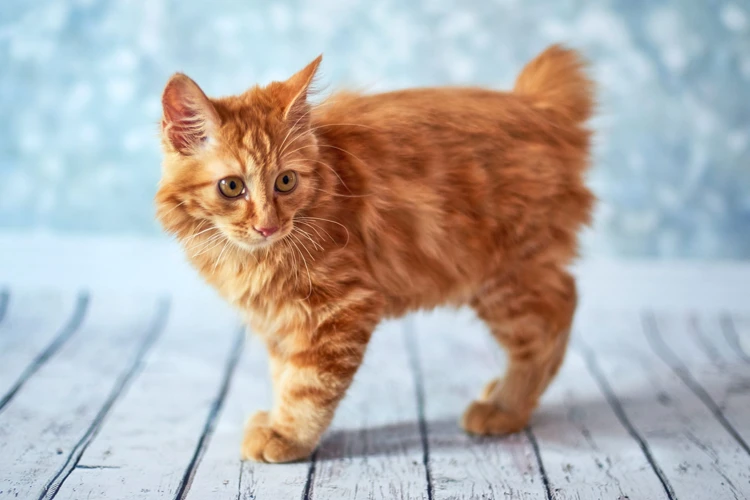
As a cat owner, you may be wondering if it’s too late to socialize your older American Bobtail. It’s natural to feel perplexed about socializing an adult cat, but the reality is that it’s never too late to start. While it may take some extra effort and patience, the benefits of socialization for your furry friend are worth it. Let’s explore some of the challenges that may arise when socializing an older American Bobtail and some ways to overcome them.
Challenges that may arise when socializing an older American Bobtail
As with any animal, socializing an older American Bobtail can present some unique challenges. It is important to remember that older cats may not have had the same exposure to new situations as kittens would, which can make socialization more difficult. Here are some potential challenges that owners may face when socializing an older American Bobtail:
| Challenge | Description |
| Limited social experience | Older American Bobtails may not have been exposed to different people, animals, or environments, making socialization more difficult. |
| Behavioral issues | Older cats may have developed behavioral issues that need to be addressed before socialization can occur. |
| Lack of trust | Older American Bobtails may have developed a distrustful attitude towards humans, which can make socialization more challenging. |
| Fear of new situations | Some older cats may experience anxiety or fear when exposed to new situations or environments, which can hinder socialization progress. |
Owners may need to work slowly and consistently with their older American Bobtail to help them overcome these challenges. It is important to remain patient and positive throughout the socialization process to help the cat feel comfortable and secure.
Ways to help your older American Bobtail overcome socialization challenges
Socializing older American Bobtails can be a bit more challenging than socializing kittens, but with the right approach, it is still possible. Here are some ways to help your older American Bobtail overcome socialization challenges:
- Start slow: Don’t overwhelm your older American Bobtail by introducing them to too many new situations or people all at once. Start with small steps and gradually increase the level of exposure.
- Use positive reinforcement: Reward good behavior with treats, toys, or praise. This will help your American Bobtail associate social situations with positive experiences.
- Expose them to different environments: Take your American Bobtail to new places and let them explore. This will help them get used to different sights, sounds, and smells.
- Use pheromone sprays: Pheromone sprays can help reduce anxiety and stress in older American Bobtails. Use them to create a calming environment during socialization sessions.
- Work with a professional: Consider working with a professional behaviorist or trainer who has experience working with older American Bobtails. They can provide expert guidance and support throughout the socialization process.
By taking these steps, you can help your older American Bobtail become more adaptable to new situations and environments, and enjoy a more fulfilling life. Remember that patience and consistency are key when it comes to socializing an older cat, so don’t get discouraged if progress is slow at first. With time and effort, your American Bobtail can learn to overcome their socialization challenges and become a confident, well-adjusted member of your family.
The Link Between Socialization and Adaptability
As social animals, American Bobtails require adequate socialization to feel comfortable in different environments and situations. Socialization plays a crucial role in their adaptability to changes, making it crucial for owners to prioritize this aspect of their cat’s development. In this section, we will highlight the vital link between socialization and adaptability and explore how it shapes the behavior and personality of American Bobtails. Understanding this dynamic relationship will help owners create a structured socialization plan that maximizes their cat’s adaptability and improves their overall well-being.
How does socialization help American Bobtails adapt better to different environments?
American Bobtails that are well socialized tend to adapt better to different environments due to a variety of reasons. Here are some ways that socialization can help:
- Reduced fear and anxiety: Socialization helps the American Bobtail become more comfortable with different people, animals, and environments. As a result, they are less likely to exhibit fear-based behaviors such as hiding, hissing, or aggression.
- Increase in confidence: Through proper socialization, American Bobtails can develop a healthy sense of confidence and independence. They learn to explore new environments and interact with different people and animals, which can help them feel more secure in unfamiliar settings.
- Better problem-solving skills: Socialization provides American Bobtails with exposure to new situations and challenges, which can help them develop their problem-solving skills. This can help them adapt to new environments more easily by allowing them to use their skills to overcome obstacles.
- Improved social skills: Proper socialization helps American Bobtails learn how to interact with different people and animals in an appropriate manner. This includes learning how to play, share resources, and communicate effectively. These skills can help them navigate different environments more successfully.
Socialization plays a crucial role in helping American Bobtails adapt better to different environments by reducing fear and anxiety, increasing confidence, improving problem-solving skills, and enhancing their social skills. It is important to start socializing your American Bobtail at a young age, but it is never too late to begin socializing an older cat. By prioritizing socialization, you can help your American Bobtail develop the skills and confidence they need to thrive in any setting.
Examples of good and bad socialization and their effects on American Bobtails
When it comes to socialization, there are good and bad practices that can have a long-lasting effect on your American Bobtail’s adaptability. Here are some examples of both:
| Good Socialization | Effect on American Bobtails |
|---|---|
| Introducing your American Bobtail to different people, animals, and environments at a young age | American Bobtails that are well-socialized from a young age tend to be more confident, curious, and adaptable when it comes to new situations later in life. |
| Using positive reinforcement to reward good behavior, such as treats or praise | American Bobtails that are rewarded for good behavior will be more likely to repeat that behavior in the future, making them easier to train and more adaptable to different situations. |
| Allowing your American Bobtail to explore their surroundings at their own pace, without forcing them to interact with things they’re scared of | American Bobtails that are given the freedom to explore and adjust to new situations at their own pace will be less likely to develop fear or anxiety around those situations later in life, making them more adaptable overall. |
On the other hand, here are some examples of bad socialization practices and how they can negatively impact your American Bobtail’s adaptability:
| Bad Socialization | Effect on American Bobtails |
|---|---|
| Isolating your American Bobtail from other people or animals | American Bobtails that are isolated from others can become fearful or aggressive towards new people or animals they encounter later in life, making it difficult for them to adapt to new situations and environments. |
| Punishing your American Bobtail for bad behavior, such as shouting or hitting | American Bobtails that are punished for bad behavior may become anxious or fearful of their owner, making them less likely to respond to training and more prone to developing behavior problems later in life. |
| Ignoring signs of fear or anxiety in your American Bobtail | American Bobtails that are not given proper care and attention when they are scared or anxious may develop behavior problems later in life, such as aggression or avoidance, making them less adaptable overall. |
It’s important for American Bobtail owners to understand the importance of socialization and to practice good socialization techniques to ensure their cat’s adaptability and overall well-being in a variety of situations and environments.
Conclusion
After exploring the role of socialization in the adaptability of American Bobtails, it is clear that early and ongoing socialization is crucial for these cats to thrive in different environments. Through proper socialization, American Bobtails can develop confidence, trust, and social skills that will help them adjust to various situations, new people, and animals. In conclusion, it is imperative for owners to prioritize socialization and positive reinforcement techniques to help their American Bobtail cats live happy, well-adjusted lives.
Summary of the importance of socialization in the adaptability of American Bobtails
Successfully socializing American Bobtails is crucial for their adaptability and overall wellbeing. Socialization helps American Bobtails in the following ways:
- Reducing fear and anxiety: By exposing American Bobtails to a variety of situations and people at an early age, they are better equipped to tolerate change and remain calm in new environments. This helps reduce fear and anxiety in the long run.
- Developing social skills: American Bobtails that have been socialized from a young age are more likely to be outgoing, friendly, and better at reading social cues. They are more confident in social situations and can easily form relationships with humans and other animals.
- Preventing behavioral issues: Improperly socialized American Bobtails can develop behavioral issues later in life such as aggression and anxiety. Socialization can prevent these issues from arising and ensure a happy and well-adjusted cat.
- Increased adaptability: American Bobtails that have been properly socialized are more adaptable and less likely to react negatively to changes in their environment. This means they can adjust more easily to new situations, be it moving to a new home or traveling with their owners.
It is important to note that socialization is not a one-time event but an ongoing process. Consistency is key in ensuring that American Bobtails remain well-socialized throughout their lives. By prioritizing socialization, owners can help their American Bobtails lead happy, healthy, and well-adjusted lives.
Encouragement for owners to prioritize socialization for their American Bobtails
As a loving owner of an American Bobtail, it’s important to prioritize their socialization. By investing time and effort into socializing your kitty, you’re not only improving their adaptability but also their overall happiness and well-being. Here are some reasons why you should prioritize socialization for your American Bobtail:
- Reduced anxiety: When your American Bobtail is well-socialized, they’re more likely to feel comfortable and secure in new situations and around strangers, reducing their anxiety levels.
- Better behavior: Socialization plays a critical role in shaping your American Bobtail’s behavior. When they’re exposed to different environments, people and sounds early on, they’re more likely to develop into a friendly, confident and well-mannered kitty.
- Improved health: A well-socialized American Bobtail is less likely to suffer from stress-related illnesses and behavioral problems that can arise when isolated or not properly socialized.
- More opportunities for adventure: A confident and well-socialized American Bobtail is more likely to enjoy adventures with their owner, such as traveling or exploring the great outdoors.
The benefits of socialization for American Bobtails are numerous and significant. Don’t underestimate the power of early and ongoing socialization for your kitty’s overall health, happiness, and adaptability. With patience, consistency, and positive reinforcement, you can help your American Bobtail become a well-socialized and adaptable member of your family.
Frequently Asked Questions
1. Can American Bobtails be socialized at any age?
Yes, American Bobtails can be socialized at any age, but it may be more challenging to socialize an older cat that has not had early socialization experiences.
2. What is the best way to socialize an American Bobtail kitten?
The best way to socialize an American Bobtail kitten is to expose them to a variety of situations, people, and animals in a positive and controlled manner, while using positive reinforcement techniques.
3. Can American Bobtails be trained for specific tasks?
Yes, American Bobtails are highly intelligent and can be trained for specific tasks, such as leash training, basic obedience, and even some tricks.
4. What are some benefits of early socialization for American Bobtails?
Early socialization can help American Bobtails become more adaptable, confident, and well-adjusted cats. It can also help prevent behavioral problems that may arise from fear or anxiety.
5. What are some common challenges in socializing older American Bobtails?
Some common challenges in socializing older American Bobtails include fear and mistrust of new people and situations, and deeply ingrained behavioral patterns that may be difficult to change.
6. How can I help my older American Bobtail overcome socialization challenges?
You can help your older American Bobtail overcome socialization challenges by taking things slow and using positive reinforcement techniques, while also providing a safe and comfortable environment for them to explore and interact with.
7. Can socialization help prevent aggression in American Bobtails?
Yes, socialization can help prevent aggression in American Bobtails by exposing them to different people and animals in a positive and controlled manner, which can help reduce fear and anxiety.
8. What are some signs that my American Bobtail may need more socialization?
Some signs that your American Bobtail may need more socialization include fear or aggression towards strangers or other animals, hiding or avoiding interaction with people, and destructive behavior when left alone for extended periods of time.
9. Can American Bobtails be socialized to live with other pets?
Yes, American Bobtails can be socialized to live with other pets, but it may take time and patience to introduce them properly and establish a positive relationship between them.
10. What are some potential risks of inadequate socialization for American Bobtails?
Some potential risks of inadequate socialization for American Bobtails include fear, anxiety, aggressive behavior, destructive behavior, and difficulty adapting to new people, situations, or environments.

